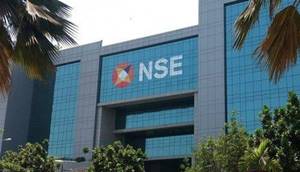
Table of Contents
Nifty 50 Indexes
A stock market index is a metric that illustrates how the stock Market has changed over time. A few comparable types of equities are selected and put together from among the securities already listed on the market to build an index.

The kind of Industry, market capitalisation, and business size might all be used as stock selection factors. The Underlying stock values are used to calculate the stock Market Index's value.
The index's overall value is affected by any changes in the underlying stock values. The index will rise if the prices of the majority of the underlying securities rise and vice versa. This article talks about one of the most crucial market indexes - The nifty 50 indexes.
What is NSE Nifty 50?
The National Stock Exchange (NSE) launched NIFTY as its flagship market index on April 21, 1996. NSE invented the term by combining the words' National Stock Exchange' and 'Fifty'.
NIFTY is a group of indexes that includes the NIFTY 50, NIFTY IT, NIFTY Bank, and NIFTY Next 50. It is part of the NSE's Futures and Options (F&O) division, which trades in derivatives.
The NIFTY 50 is a benchmark-based index representing the top 50 equities traded on the NSE out of 1600 businesses. The Indian Economy is represented by these 50 stocks, which cover 12 industries. Financial services, IT, entertainment and media, consumer goods, metals, automotive, pharmaceuticals, telecommunications, energy, metals, cement and its products, pesticides and fertilisers and other services are among the firms included in the index.
Talk to our investment specialist
Parameters For Nifty 50 Listing
According to the IISL's NIFTY 50 index methodology, a firm must meet the following eligibility requirements in order to be included in the index:
- The company must be registered with the National Stock Exchange. It has to be a company based in India
- The stock must be eligible for trading in the NSE's Futures & Options sector and be part of the NIFTY 100 index to be included in the NIFTY 50 index
- For 90% of the observations, the stock under consideration had to have traded at an average impact cost of 0.50% or less during the previous six months (Note: The fee suffered by the buyer or seller when performing a transaction of specific security with a pre-determined order size is known as impact cost)
- The company's market capitalisation should be free-floating. This should be 1.5 times the index's smallest business
- Nifty 50 Index accepts shares from firms with Differential Voting Rights (DVR)
- The company's trading frequency should have been 100% for the previous six months
Nifty 50 Calculation
The Float-adjusted and market capitalisation methods are used to calculate the Nifty 50 indexes. The level index represents the aggregate market value of the stocks in it for a certain time period. The following is the formula for computing the index value:
Market Capitalization = Price * Equity Capital Equals
Free Float Market Capitalisation = Price * Equity Capital * Investable Weight Factor
Index Value = Current market value / (1000 * Base market capital)
Nifty 50 Vs. Sensex
Both the Nifty 50 and the Sensex are stock market indexes in India that show the stock market's strength. Despite their similarity to the broad-based index, Sensex and Nifty 50 are not the same. Here are the key differences between the two:
| Basis | Nifty 50 | Sensex |
|---|---|---|
| Derivation | National Fifty | Sensitive Index |
| Another name | S&P CNX Nifty | S&P BSE Index |
| Incorporation year | 1992 | 1986 |
| Owns and operated by | Index and Services and Products Limited (IISL), an NSE India subsidiary | Bombay Stock Exchange (BSE) |
| Location | Exchange Plaza, Bandra Kurla Complex, Mumbai | Dalal Street, Mumbai |
| Base period | November 3 1992 | 1978-1979 |
| Base value | 1000 | 100 |
| Base capital | 2.06 trillion | Not applicable |
| Comprises of | Top 50 stocks traded on NSE | Top 30 stocks traded on BSE |
| Sectors | 24 | 13 |
| Listed companies | 1600 | 5000 |
Nifty 50 Stocks List 2025
Although various indexes exist in the Indian equities markets, the NSE's Nifty 50 is one of the most significant indexes. The stocks in the Nifty 50 index are well-known Indian corporations from several industries.
These large-cap firms' performance reflects the Indian economy. Here is the list of companies that are part of Nifty 50.
Top Nifty 50 Companies List
As of 2025, the following table shows the list of firms in the NIFTY 50, the industry they represent, and their weightage:
| Company Name | Sector | Nifty 50 Weightage |
|---|---|---|
| Adani Port and Special Economic Zone | Infrastructure | 0.68% |
| Asian Paints Ltd. | Consumer Goods | 1.92% |
| AXIS Bank Ltd. | Banking | 2.29% |
| Bajaj Auto Ltd. | Automobile | 0.52% |
| Bajaj Finance Ltd. | Financial Services | 2.52% |
| Bajaj Finserv Ltd. | Financial Services | 1.42% |
| Bharat Petroleum Corp. Ltd. | Oil & Gas | 0.48% |
| Bharti Airtel Ltd. | Telecommunication | 2.33% |
| Britannia Industries Ltd. | Consumer Goods | 0.57% |
| Cipla Ltd. | Pharmaceuticals | 0.67% |
| Coal India Ltd. | Mining | 0.43% |
| Divi’s Laboratories Ltd. | Pharmaceuticals | 0.82% |
| Dr Reddy's Laboratories Ltd. | Pharmaceuticals | 0.77% |
| Eicher Motors Ltd. | Automobile | 0.45% |
| Grasim Industries Ltd. | Cement | 0.86% |
| HCL Technologies Ltd. | IT | 1.68% |
| HDFC Bank Ltd. | Banking | 8.87% |
| HDFC Life Insurance Co. Ltd. | insurance | 0.86% |
| Hero MotoCorp Ltd. | Automobile | 0.43% |
| Hindalco Industries Ltd. | Metals | 0.82% |
| Hindustan Unilever Ltd. | Consumer Goods | 2.81% |
| Housing Development Finance Corporation Ltd. | Financial Services | 6.55% |
| ICICI Bank Ltd. | Banking | 6.72% |
| Indian Oil Corporation Ltd. | Oil & Gas | 0.41% |
| IndusInd Bank Ltd. | Banking | 0.7% |
| Infosys Ltd. | IT | 8.6% |
| ITC Ltd. | Consumer Goods | 2.6% |
| JSW Steel Ltd. | Metals | 0.82% |
| Kotak Mahindra Bank Ltd. | Banking | 3.91% |
| Larsen & Toubro Ltd. | Construction | 2.89% |
| Mahindra & Mahindra Ltd. | Automobile | 1.09% |
| Maruti Suzuki India Ltd. | Automobile | 1.27% |
| Nestle India Ltd. | Consumer Goods | 0.93% |
| NTPC Ltd. | Energy – Power | 0.82% |
| Oil & Natural Gas Corporation Ltd. | Oil & Gas | 0.7% |
| Power Grid Corporation of India Ltd. | Energy – Power | 0.96% |
| Reliance Industries Ltd. | Oil & Gas | 10.56 |
| SBI Life Insurance Co. | Insurance | 0.69% |
| Shree Cement Ltd. | Cement | 0.47% |
| State Bank of India | Banking | 2.4% |
| Sun Pharmaceutical Industries Ltd. | Pharmaceuticals | 1.1% |
| Tata Consultancy Services Ltd. | IT | 4.96% |
| Tata Consumer products Ltd. | Consumer Goods | 0.63% |
| Tata Motors Ltd. | Automobile | 1.12% |
| Tata Steel Ltd. | Metals | 1.14% |
| Tech Mahindra Ltd. | IT | 1.3% |
| Titan Company Ltd. | Consumer Goods | 1.35% |
| UltraTech Cement Ltd. | Cement | 1.16% |
| UPL Ltd. | Chemicals | 0.51% |
| Wipro Ltd. | IT | 1.28% |
The Bottom Line
An index represents the fluctuations in the market. It represents the market mood and price changes in general. This is how investors and financial managers assess the worth of their investments.
The Nifty 50 is a versatile investment that appeals to a wide Range of risk appetites. You can, for example, invest directly in Nifty futures and options if you are an active investor. Nifty BeES could be suitable for you if you are a relatively active investor. Even if you are a cautious investor, an index Mutual Fund can help you benefit from the Nifty's rise.
All efforts have been made to ensure the information provided here is accurate. However, no guarantees are made regarding correctness of data. Please verify with scheme information document before making any investment.












